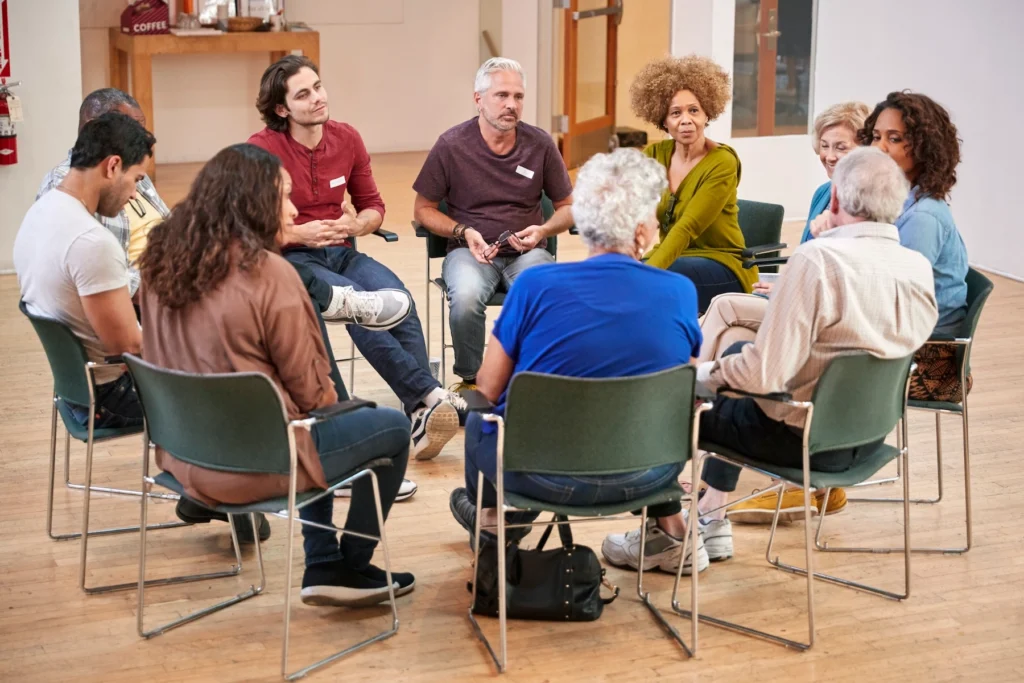Long-Term Sobriety Is Simple but not Easy
Staying sober long term is not an easy journey, but it is one that can be rewarding and life-changing. Whether you’re someone who is recovering from alcohol, drugs, or other addictive behaviors, making the decision to stay sober is a huge first step toward taking control of your life. However, staying sober for the long haul takes time, effort, and support. In this blog, we’ll explore some of the most effective strategies and tips that can help you stay sober, build a fulfilling life, and maintain long-term sobriety.
1. Find a Support System
One of the most important factors in staying sober long term is having a strong support system. It can be difficult to navigate the challenges of sobriety alone, which is why it’s important to surround yourself with people who understand your journey and who want to see you succeed.
- Family and Friends: The people who care about you can provide emotional support, encouragement, and a sense of accountability. However, they may not always know how to help, so it’s important to communicate with them about your needs and boundaries.
- Support Groups: Groups like Alcoholics Anonymous (AA), Narcotics Anonymous (NA), or other 12-step programs can provide a sense of community. These groups are made up of people who are all working toward the same goal: staying sober. Attending meetings and connecting with others in recovery can help you stay motivated.
- Therapists and Counselors: A professional therapist or counselor can help you work through the emotional and mental challenges of staying sober. They can teach you coping strategies and provide support when you need it the most.

2. Create a Routine
One of the things that addiction can rob from a person is a sense of structure and routine. Establishing a daily routine can help you feel more in control of your life and give you a sense of purpose.
- Start Your Day with a Positive Habit: Whether it’s exercising, journaling, meditating, or just having a healthy breakfast, starting your day with a positive habit can set the tone for the rest of the day. Creating morning rituals can give you something to look forward to.
- Keep Busy: Filling your day with productive activities can prevent you from falling into boredom, which is often when temptation strikes. Stay busy by focusing on work, hobbies, self-care, or volunteering.
- Sleep and Rest: Getting enough sleep is crucial for your physical and mental health. Lack of sleep can lead to irritability and poor decision-making, which can make staying sober harder. Try to stick to a regular sleep schedule and avoid things that might interfere with your rest, like excessive screen time or too much caffeine.
3. Avoid Triggers and Temptations
When you’re in recovery, it’s essential to avoid places, people, or situations that might tempt you to relapse. This can be one of the most challenging aspects of staying sober, but being mindful of your triggers and knowing how to handle them can make all the difference.
- Know Your Triggers: Triggers are people, places, or emotions that can lead to cravings or the urge to use again. For example, if you associate drinking with certain social settings, it might be best to avoid those places, at least for the time being. By recognizing your triggers, you can prepare yourself to deal with them in healthy ways.
- Make Safe Choices: This means not going to parties or social gatherings where alcohol or drugs are present, especially in the early stages of recovery. Avoiding these situations can help protect your sobriety and give you more confidence in your ability to stay sober.
- Practice Saying No: Sometimes you’ll find yourself in situations where people try to offer you substances, and being able to say “no” firmly is a skill you need to develop. Practicing this skill can help you feel more confident in social situations.
What Triggers do you have?
4. Develop Healthy Coping Skills
Addiction often stems from an inability to cope with difficult emotions or situations. When you stop using substances, it’s important to develop new, healthier ways to cope with life’s challenges. Here are some healthy coping skills you can practice:
- Exercise: Physical activity is one of the best ways to cope with stress and anxiety. Regular exercise can help you release pent-up emotions, boost your mood, and improve your physical health. Whether it’s going for a walk, joining a gym, or trying yoga, find an activity you enjoy and stick with it.
- Mindfulness and Meditation: Meditation and mindfulness practices can help you stay present and grounded in the moment. These practices can also help reduce stress and anxiety, making it easier to stay sober. Apps like Headspace or Calm can help you get started with meditation.
- Creative Outlets: Engaging in creative activities like painting, writing, or playing music can give you a healthy way to express your emotions. It’s a great way to release stress and also build confidence in your abilities.
- Talk About Your Feelings: It’s important to communicate your emotions with others. This can be with a therapist, a friend, or even a support group. Bottling up your feelings can make it more difficult to stay sober, so don’t be afraid to open up and talk.
5. Set Realistic Goals
Setting goals gives you something to work toward and helps you stay focused. When you’re in recovery, setting realistic, achievable goals can be especially helpful in keeping you motivated. Start with small goals and work your way up to bigger ones.
- Short-Term Goals: Start by setting daily or weekly goals. For example, aim to make it through the week without any cravings, or commit to attending a certain number of support group meetings each month. Short-term goals can help you feel accomplished and motivated.
- Long-Term Goals: As you progress in your recovery, think about your long-term goals. Maybe you want to return to school, start a new career, or improve your relationships with loved ones. Whatever your goals are, break them down into smaller steps to make them more manageable.
- Celebrate Milestones: Don’t forget to celebrate the small victories along the way. Whether it’s a month of sobriety or completing a difficult goal, taking time to acknowledge your progress will keep you motivated.
6. Focus on Self-Care
In recovery, self-care is essential for your physical and mental well-being. Taking care of yourself shows that you are worth the effort and helps you stay grounded in your sobriety.
- Eat a Healthy Diet: Good nutrition plays an important role in your recovery. A balanced diet can help stabilize your mood and energy levels. Avoid junk food and focus on eating nutrient-rich foods, including fruits, vegetables, lean proteins, and whole grains.
- Take Time for Yourself: Self-care isn’t just about eating well or exercising. It’s also about taking time for activities that bring you joy and relaxation. Whether it’s taking a bath, reading a book, or spending time in nature, make sure you’re doing things that nourish your body and mind.
- Set Boundaries: Learning to say “no” is an important part of self-care. Setting boundaries with others and yourself helps protect your mental and emotional health. It’s okay to prioritize your well-being over pleasing others.

7. Build Healthy Relationships
Recovery is a time to rebuild relationships and create new ones with people who are supportive of your sobriety. Healthy relationships can be a huge source of strength when things get tough.
- Find Positive Role Models: Surround yourself with people who are positive, sober, and living healthy lives. Their example can inspire you to stay sober and work toward your own goals.
- Communicate Openly: Be honest with your loved ones about your struggles and your successes. Open communication helps build trust and understanding in your relationships.
- Create a Supportive Network: In addition to family and friends, you can also connect with others who are sober or in recovery. These people can offer support, share their experiences, and provide advice when you need it.
8. Stay Active in Your Recovery
Recovery doesn’t end after a few months or years—it’s a lifelong process. Staying involved in your recovery is essential for long-term success.
- Stay Engaged in Support Groups: Keep attending meetings, even after you feel stable in your sobriety. This will help you stay connected with others and remind you of the importance of your recovery.
- Seek Continued Therapy: Therapy can help you work through any ongoing struggles or challenges you may face. Continuing to see a therapist even after early recovery can help you stay on track.
- Give Back: One of the best ways to stay sober is to help others. Whether it’s sponsoring someone in a 12-step program, volunteering, or just offering support to someone else in recovery, giving back helps keep you grounded and reminds you of how far you’ve come.
Conclusion
Staying sober long term is not easy, but it is possible with the right tools, support, and mindset. By building a strong support system, creating a healthy routine, avoiding triggers, developing coping skills, setting goals, practicing self-care, building healthy relationships, and staying active in your recovery, you can achieve lasting sobriety and live a fulfilling, happy life. Remember, recovery is a journey, not a destination, and each day you stay sober is a victory. Stay focused, stay positive, and remember that you’re not alone on this path.






